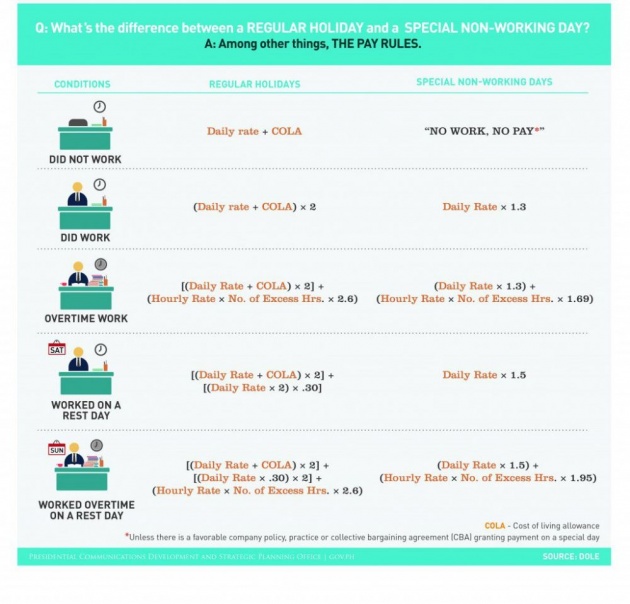
Exceptions
This rule shall apply to all employees except:
- Those of the government and any of the political subdivision, including government-owned and controlled corporation;
- Those of retail and service establishments regularly employing less than ten (10) workers;
- Domestic helpers and persons in the personal service of another;
- Managerial employees as defined in Book Three of the Omnibus Rules to Implement the Labor Code of the Philippines;
- Field personnel and other employees whose time and performance is unsupervised by the employer including those who are engaged on task or contract basis, purely commission basis, or those who are paid a fixed amount for performing work irrespective of the time consumed in the performance thereof.
Source: Book 3, Rule IV, Section 1, Omnibus Rules to Implement the Labor Code of the Philippines
Holiday pay of certain employees
- Private school teachers, including faculty members of colleges and universities, may not be paid for the regular holidays during semestral vacations. They shall, however, be paid for the regular holidays during Christmas vacation;
- Where a covered employee is paid by results or output, such as payment on piece work, his holiday pay shall not be less than his average daily earnings for the last seven (7) actual working days preceding the regular holiday; Provided, however, that in no case shall the holiday pay be less than the applicable statutory minimum wage rate;
- Seasonal workers may not be paid the required holiday pay during off-season when they are not at work;
- Workers who have no regular working days shall be entitled to the benefits provided in this Rule.
Source: Book 3, Rule IV, Section 8, Omnibus Rules to Implement the Labor Code of the Philippines



